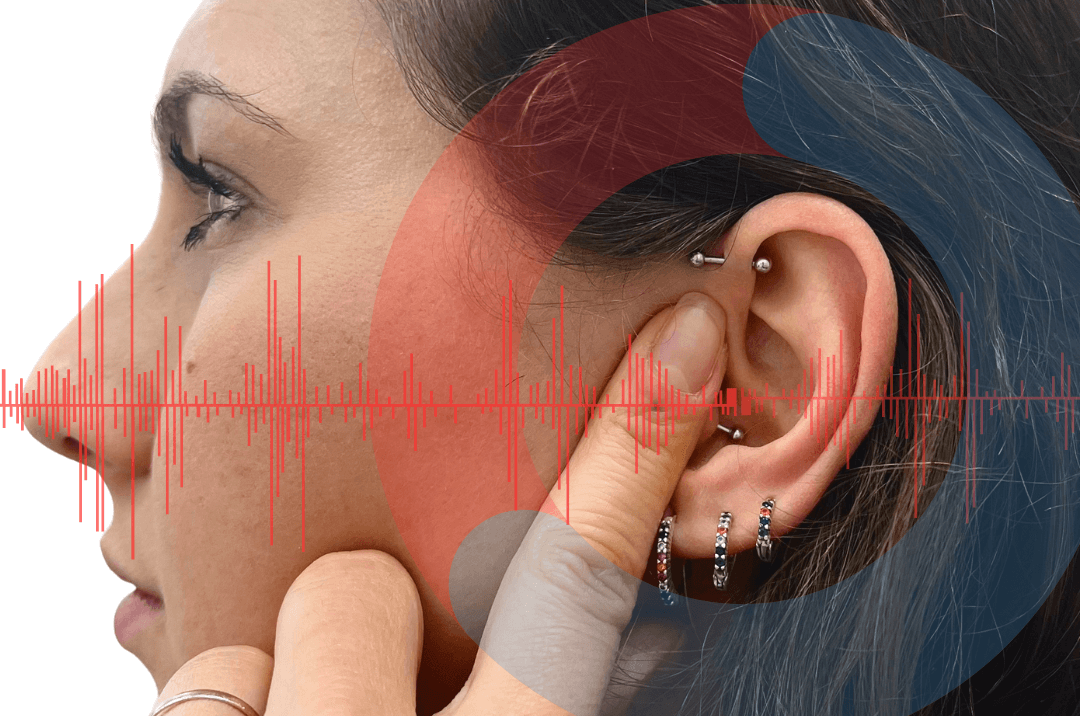As we age, some people experience a gradual loss in their hearing. Speech and sounds may become muffled and you may notice yourself turning up the volume on things as it worsens. Whilst this is perhaps the most well known cause of hearing loss, it is certainly not the only one…

As we age, some people experience the beginnings of hearing loss.
Sensorineural Hearing Loss
This is the most common type of hearing loss. The nerves and hair follicles in the inner ear can become damaged over time due to age, head trauma or loud noise exposure. The only way to treat this type of hearing loss is with hearing aids.
If you are regularly exposed to very loud noise, you are most at risk of developing sensorineural hearing loss. For example, if you work in construction and don’t wear ear protection, the heavy machinery can result in hearing loss.

Wearing ear muffs can help reduce the risk of noise induced hearing loss
This type of hearing loss can also be caused after a traumatic brain injury. This can happen if the part of your brain which processes sound (the auditory cortex) is damaged.
Some people are born with sensorineural hearing loss. This can be because of genetic factors or birth defects. Approximately 1 or 2 in every 1000 births are affected by a hearing loss birth defect. Newborn babies have a hearing test after they are born to ensure any issues are discovered as quickly as possible.
Viral infections such as measles, mumps and meningitis can cause hearing loss so it’s important to pay attention to any changes in your hearing if you have suffered from any of these infections recently. Any changes should be reported to your doctor as soon as possible. There are also some prescribed medications that can result in damage to the cochlea. This can sometimes result in hearing loss, particularly in those who need to take lots of different medications. Any such side effects of specific medications will be discussed with you by your GP and if you do notice any changes in your hearing, you should alert your doctor.
Conductive Hearing Loss
The main difference with this type of hearing loss is that it is not always permanent. Conductive hearing loss occurs in the middle and outer ear and is often due to fluid or a build-up of earwax. This type of blockage can prevent sound from entering the inner ear and therefore results in muffled sounds or difficulty hearing softer sounds.
Ear infections are one such cause potential cause of conductive hearing loss. Swimmer’s ear is an infection that can result in conductive hearing loss. It is caused when water remains in your ear after swimming creating a moist environment which encourages bacteria. Once an infection clears up (usually after a visit to the GP and a course of antibiotics), your hearing will usually return to normal. It’s important that ear infections are treated to ensure no permanent damage is done to the delicate structures in your ear.
People who suffer with persistent allergies can find themselves suffering with conductive hearing loss. Allergies, such as hayfever or animal allergies, cause sneezing, sinus itchiness, congestion and ringing of the ears. People regularly take antihistamines to combat these symptoms and hopefully manage to keep this type of hearing loss at bay.
If you are experiencing any change in your hearing, it’s important to get booked in for a hearing consultation. An Audiologist will be able to do a full hearing test with you, discuss the results and prescribe the right type of hearing aids for your specific hearing loss. If you would like to discuss this in further details, please give us a call.
[html_block id=”3745″]




